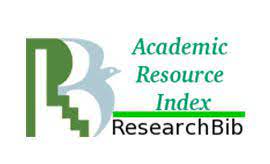EVALUATION OF QUALITY MANAGEMENT SYSTEMS
DOI:
https://doi.org/10.51707/2618-0529-2020-19-07Keywords:
standards, internal audit, quality management system, auditor, expert assessmentAbstract
The article defines the essence of the concepts “assessment” and “internal audit” of the quality assurance system, the requirements of international ISO standards for the formation of an internal system for evaluating the effectiveness of management systems are analyzed, highlights the main aspects of the formation of the program and plan of internal audit, the competence of auditors, proposes a method of expert assessment in the quality management system of educational institutions in the context of a real educational process, proposes automated information and analytical management system. The authors noted that the effectiveness of the conducted internal audit (hereinafter IA) depends on an effective audit program, the competence of auditors and further improvement actions. The purpose, criteria and methods of the audit program are also determined, the example of the “Program of internal audit of structural units of the college” is given. The requirements for auditors were selected and substantiated. Attention is drawn to the fact that the functioning of the quality management system (hereinafter QMS) directly depends on the systematic nature and effectiveness of the IA and, as a consequence, the systematic improvement of the system itself. The proposed system of expert assessment of QMS is considered on the example of the management of the professional pre-higher education institution of the separate structural subdivision “Kherson Polytechnic College of the Odessa National Polytechnic University”. The basic requirements for the formation of a group of experts are defined, also for obtaining a quality forecast the requirements for the competence of experts are defined. The authors of the article concluded that obtaining a general assessment of all processes and identifying the most problematic aspects without automated management is very difficult, so it is proposed to use the suggested system of expert assessment of QMS.
References
Lebedynets, V. (2010). Evaluation of documentation within the quality management system of a pharmaceutical company. Upravlinnia, ekonomika ta zabezpechennia yakosti v farmatsii, 3,12–17 [in Ukrainian].
Makeieva, O. (2010). Prospects for the development of internal audit in Ukraine. Ekonomist, 6, 54–57 [in Ukrainian].
Guidelines for audits of management systems. (2013). DSTU ISO 19011:2012 (ISO 19011: 2011, IDT) from 1st July 2013. Kyiv : Derzhstandart Ukrainy [in Ukrainian].
Stepanov, S. A. (2010). Methodology for assessing the internal quality management system. Upravlenie kachestvom: materialy ІІІ Vseros. nauch.- prakt. konf. s mezhdunar. uchastiem (pp. 109–120). — “MATI” RGTU im. K. E. Tsiolkovskogo [in Russian].
Serheieva, O. I. (2011). Computer modeling and information technology in science, economics and education. Kryvyi Rih : Рublishing department of Kryvyi Rih State Pedagogical University [in Ukrainian].
Usychenko, Yu. (2003). Formation of quality management system of educational services in higher educational institutions. Ukraina: aspekty pratsi, 8, 14–17 [in Ukrainian].
Vitkin, L., Laptiev, S., Khimicheva, H. (2013). Conceptual model for assessing the quality of the training of higher education graduate. Standartyzatsiia, sertyfikatsiia, yakist, 3, 68–71 [in Ukrainian].
Sobolev V. S., Krasnobaev A. V., Kushnarev A. V., Tsyplyaeva N. I. (2015). Possibilities of using CALS — technologies for information support of the quality management system of a university. Izvestiya Sankt-Peterburgskogo gosudarstvennogo elektrotekhnicheskogo universiteta LETI, І, 55–63 [in Russian].
Bezpal’ko, V. P. (2012). Education and learning with computers (pedagogy of the third millennium). Mosсow : NPO “MODEK” [in Russian].
Alekseeva, N. G. (2015). About the possibilities of applying the model of total quality management in the system of continuous professional education. Upravlenie kachestvom: materialy ІІІ Vseros. nauch.-prakt. konf. s mezhdunar. uchastiem (pp. 345–351). — “MATI” RGTU im. K. E. Tsiolkovskogo [in Russian].
Downloads
Published
How to Cite
Issue
Section
License
Copyright (c) 2021 Scientific nontes of Junior Academy of Sciences of Ukraine

This work is licensed under a Creative Commons Attribution 4.0 International License.













